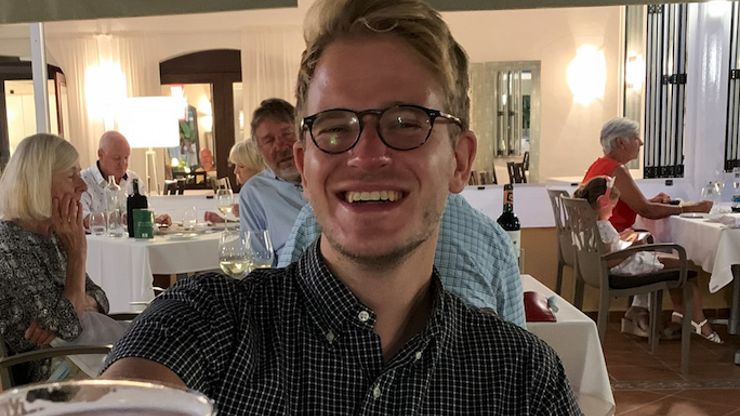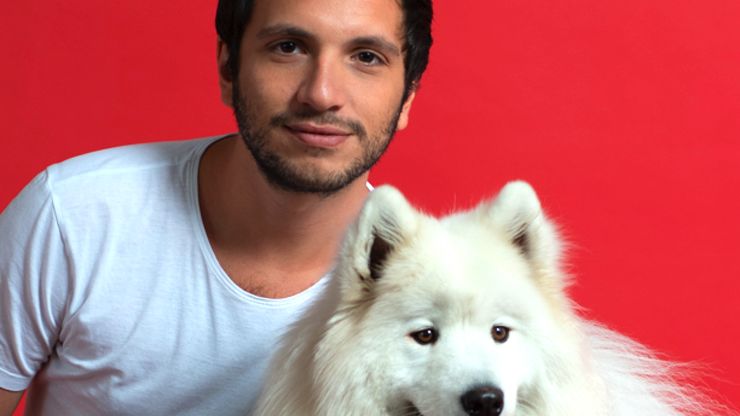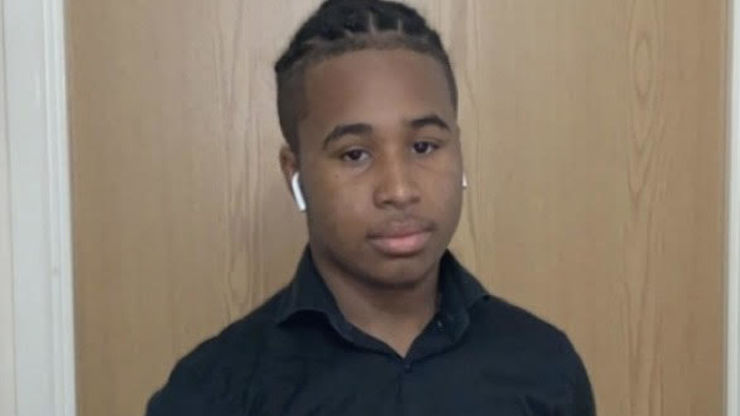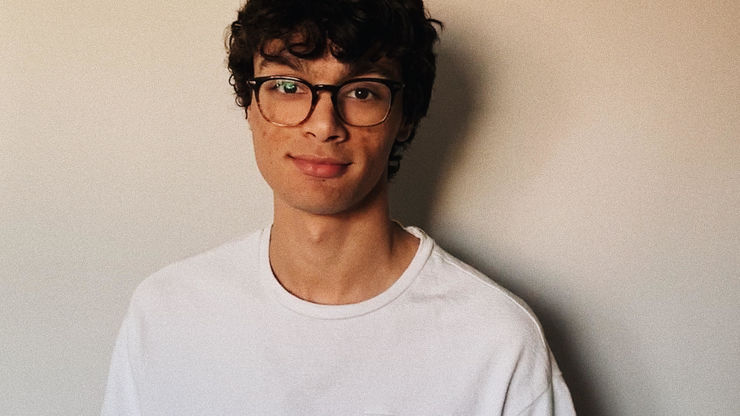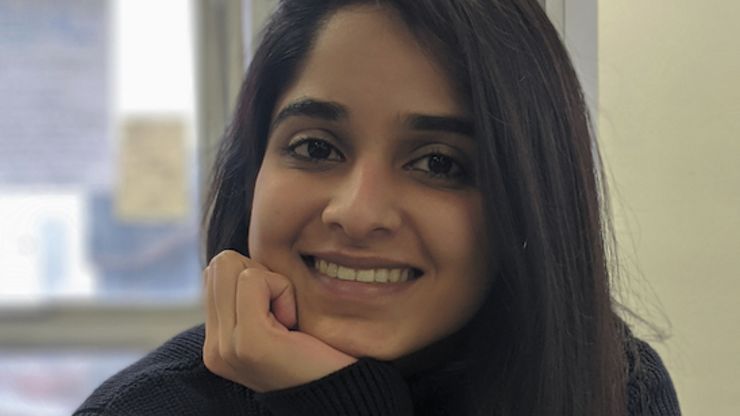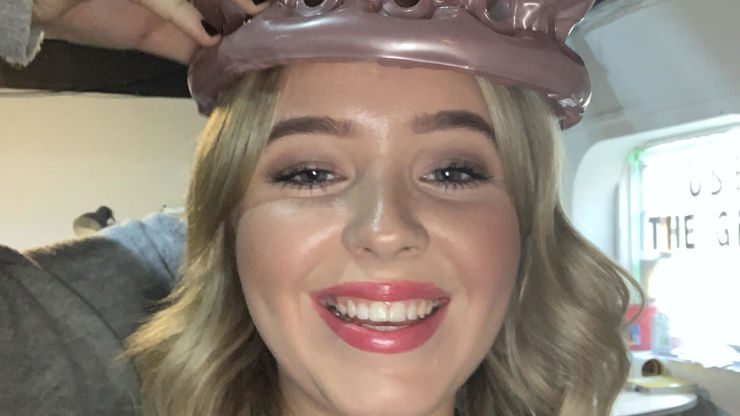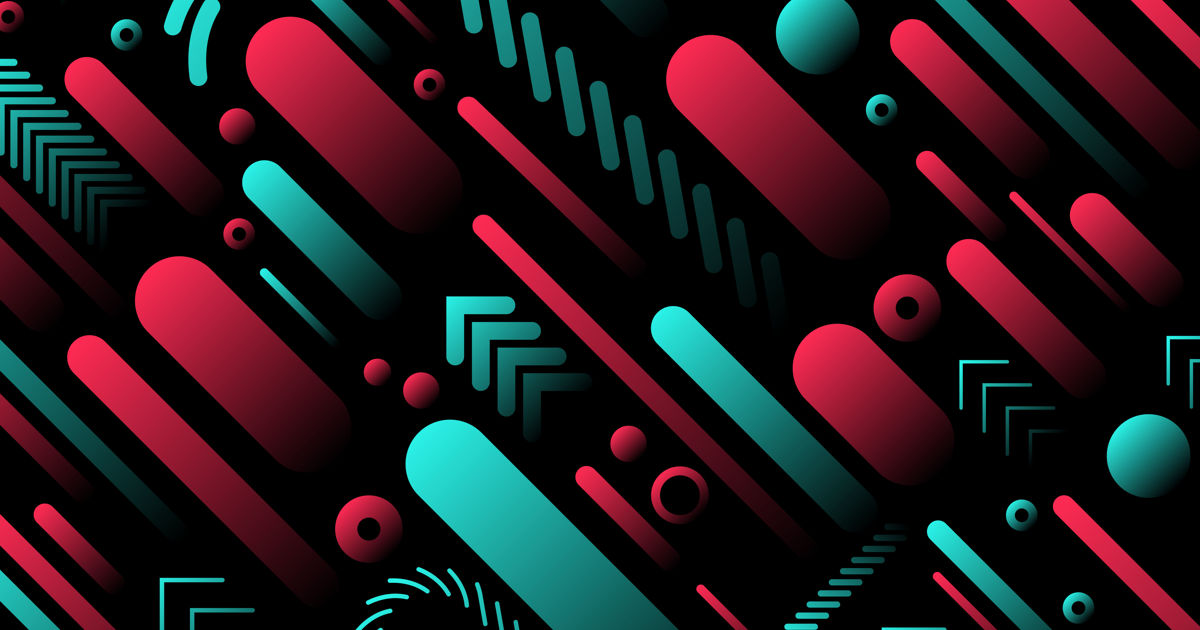The ad world’s unproductive obsession with TikTok
This month, in Amy Kean's ongoing series about culture within advertising, she examines the industry's obsession with - but lack of understanding about - TikTok. “It’s like Reddit or Mumsnet, but with fewer nazis and mums,” says one junior creative who thinks agencies are missing a social media trick.
Can you be obsessed with something you’ve never experienced?
I’m obsessed with Center Parcs. With its subtropical swimming paradise, with the savage intensity of the plunge pool and chaotic bonhomie of the Wild Water Rapids. I’m obsessed with people spelling its name wrong. I’m obsessed with the in-chalet sauna. The disco. The overpriced ParcMarket and Pancake House. Archery. I’m obsessed with the speed at which Center Parcs' Starbucks baristas operate, which is approximately one third of the speed of a regular Starbucks barista. THE WAVE MACHINE. And I’m so obsessed I talk about it all the time.
Amongst the mass of thought-leaders it’s considered perfectly normal to be obsessed with things you know nothing about.
But… I’ve been there before. If you forced me to count, I reckon I’ve been to Center Parcs 12 times. My experience has fuelled this obsession and, thus, I am qualified to discuss my favourite woodland getaway at length. If you were ever to plan a brand partnership with Center Parcs, you call ME.

Above: If you're obsessed with something, such as, for example, Center Parcs, it's best to know a bit about it.
The ad industry is nothing like me. Why? Because amongst the mass of thought-leaders it’s considered perfectly normal to be obsessed with things you know nothing about (AI, anyone?) which is why depth and substance have always been a struggle. This year everybody’s been talking about TikTok, whilst not necessarily experiencing TikTok.
Last week, a secretive young creative team called Very Serious Partners launched a guerrilla campaign to seek attention from an ad industry in lockdown. With work a scarcity in these last few months, they held a number of ad companies’ TikTok handles hostage. Or, rather, they snapped them up before agencies like Adam&EveDDB, Uncommon London and Lucky Generals did, in return for a placement.
Marketing Week columnist Mark Ritson recently said: “I’d rather dunk my head in a bucket of cold piss for an hour [than spend time on TikTok]".
The message from the Very Serious Partners [below] was upper case and clear. A funny stunt, which has already led to conversations with TBWA. But it’s also a serious message. Why isn’t our industry taking TikTok seriously? Marketing Week columnist Mark Ritson recently said: “I’d rather dunk my head in a bucket of cold piss for an hour [than spend time on TikTok]". Which made me wonder… what about hot piss? And how long does piss stay hot for? Surely not an hour?
But there’s a lot of anti-TikTok chatter amongst the older guard according to Alex Morris and Oliver Finel (who may or may not be the brains behind the hostage situation): “It’s a buzzword that instantly gets their back up, and they trot the quote out about advertisers being the dog that barks at every passing car, and getting too hung up on the Next Big Thing.”
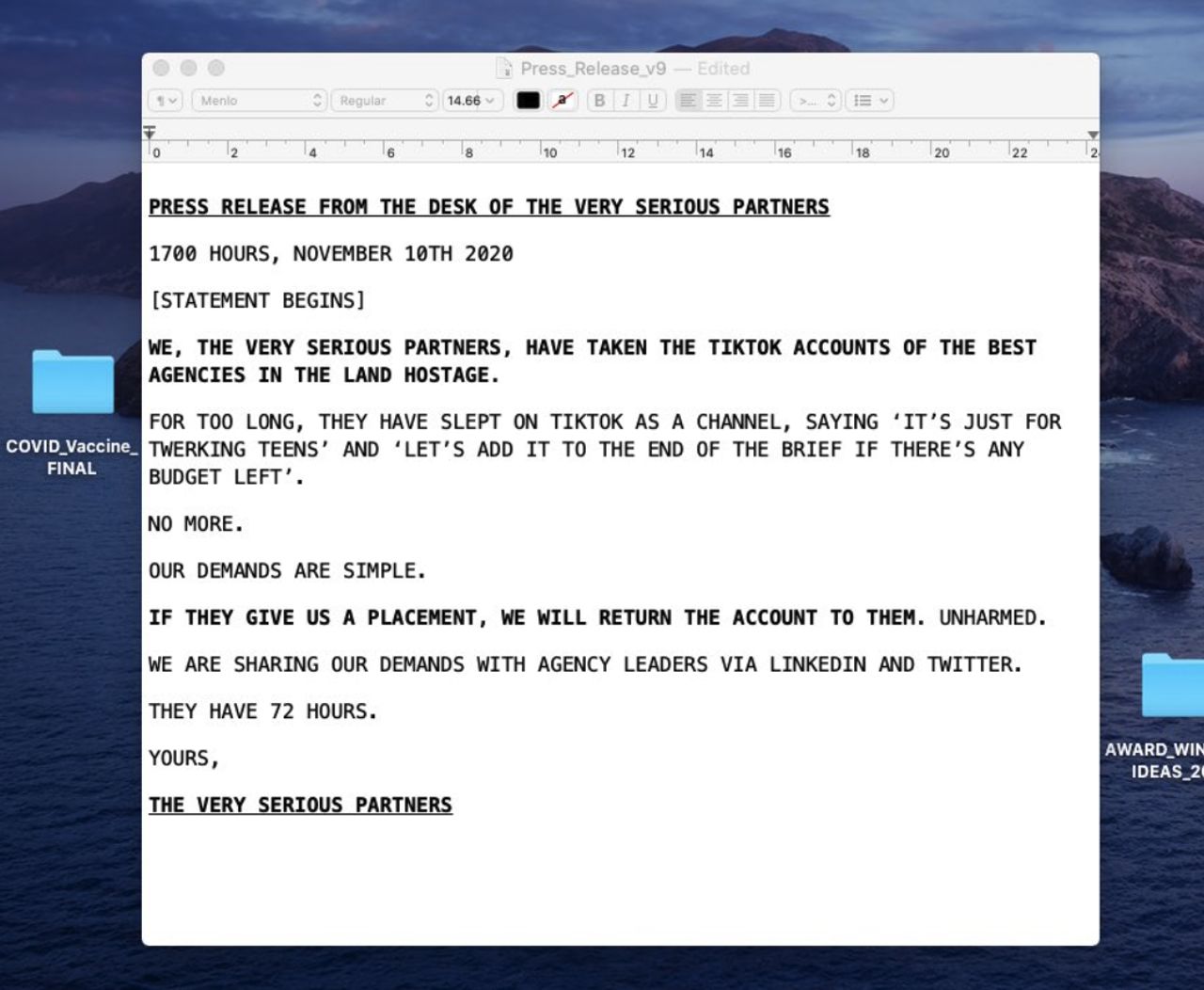
Above: Two young creatives calling themselves the Very Serious Partners, took agency TikTok accounts 'hostage' in a clever stunt which shone a light on the industry's lack of understanding around the platform.
It’s definitely big. As of November 2, TikTok had 800 million monthly active users, and 41% of them are aged between 16 and 24, so it’s considered a platform primarily for the young (Source: GWI 2020). Although, with 50% of the platform’s user base over the age of 34, the tween cliche is a bit exaggerated. Ash Porter, a young creative who discovered his passion for copywriting on the platform, thinks TikTiok’s personalisation makes it great for everyone: “It curates one of the most unique data-fuelled feeds for their users, so is relevant and enjoyable for all ages. It is just stigma that most new apps are for the younger generation, but quite a few ‘old people’ have became famous on Tiktok, using age to their advantage.”
For many in our ad bubble, their only exposure to TikTok will have been Sarah Cooper miming to Trump speeches [below] and uber-TikTok-user Jason Derulo doing various things. But, knowing that my youngish niece has become approximately 70% funnier as a human since she got an account, I decided to give TikTok some time.
Not a whole 60 minutes, because I’ve got shit to do, but I asked a handful of tomorrow’s most exciting creatives in the ad industry whether the TikTok movement (and I do believe it’s a creative movement, accelerated by Covid) is getting enough respect from budget-holders. Because, for young people in particular, the platform offers profound psychological meaning.
Caelan Reece studies the cultural and creative industries at Kingston School of Art and is convinced TikTok powers social development, helping to define Generation Z, rather than the other way around: “It’s a great example of how much we love to label ourselves. My bio is filled with labels like my horoscope and Hogwarts house because I know that people immediately know me without even needing to watch a single video.”
Our industry is obsessed with trends, to the extent that the word ‘trend’ has now lost all meaning.
Reece told me about the Generation Z tattoo, originally proposed by TikTok user smoothavocado as a form of widespread unity and rebellion for an age group that loves to explore and name its identities. Unfortunately, it quickly became apparent that the Z design was similar to a popular Nazi symbol, but not before thousands of TikTokers had inked their skin with it. Permanent damage aside, Kerry Mahoney, who was most recently a copywriting intern at TBWA, believes that the platform has been groundbreaking: “I've seen so many videos where people said they wouldn't have come out if it wasn't for being exposed to other LGBTQ+ creators on TikTok.”
Our industry is obsessed with trends, to the extent that the word ‘trend’ has now lost all meaning. But trends on TikTok are a completely different matter; frantic, fast-moving and peppered with in-jokes. Last year, when I was told by young relatives to a “catch a woah” [below], I balked, in that old person, irritated, “why is this funny?!” way.
Above: TikTok's "catch a woah" challenge.
So, for an outsider, the platform could easily feel intimidating. Mahoney believes this has resulted in a reluctance amongst many to produce bespoke creative. “Don't just cut your TVC into a 15-second edit and put it as a sponsored ad! Nobody will watch it! I think TikTok needs to be approached in a different way.”
As a media agency innovation veteran, watching brands whack a regular old ad on any platform without adapting to the environment always made my blood boil, which I guess was TikTok’s reason for their 2020 campaign: Don’t Make Ads, Make TikToks, which called for marketers to try and capture the essence of its popular creators to give their ads more integrity.
Above: TikTok's Don’t Make Ads, Make TikToks tutorial video for marketers.
Around a month ago the platform banned weight loss ads for under 18s, which is good news. But whilst brands like Converse, Mac and KFC are doing a good job, according to young creatives, something still doesn’t feel right.
Getting Addison Rae to prance around in (American Eagle) skinny jeans, grinding her hips to Justin Timberlake is hardly a creative breakthrough.
Some have no faith whatsoever. Mihika Jeyanth, an MA Advertising student from the London College of Communication, is brilliantly brutal: “I don't see TikTok as a platform for brands. It makes sense for brand influencers, maybe. Start by actually getting strategy and creative teams on the platform so they can understand its usability. There is potential but so far it seems untapped.”
Brands gonna brand, agencies gonna agency, I guess, but amongst tomorrow’s creatives, the frustration is real. Elle Bellwood, a freelance PR creative, says: “I have yet to see any brands use TikTok creatively off their own backs. Getting Addison Rae to prance around in (American Eagle) skinny jeans, grinding her hips to Justin Timberlake is hardly a creative breakthrough.” For Bellwood, leaning on users of the platform to ideate is a non-negotiable. “Unless you use the app I don’t feel you can give an opinion on it. When I first started using TikTok I was amazed at the levels of creative genius on some of the videos.”
Above: Alex Morris and Oliver Finel, the two young creatives behind Very Serious Partners.
And herein lies an issue agencies have never managed to fix. An assumption that generalist creatives with enough experience can produce for any platform. But Ben Steele, Head of Comms at Growth Rocket Apps, disagrees: “It’s the one place where brands almost always come across as trying too hard, it never feels right. Brands need to leverage creatives in their niche. There’s so much potential but many people in the ad industry don’t understand TikTok. It’s either ignored and ridiculed, or used as a place to throw whatever video ads already exist and hope for the best. I’ve never, ever seen an ad on TikTok that resonated with me. It’s way more than just a place for kids to do stupid dances. Ad people need to look beyond their circle and biases to properly reflect their audiences.”
If you want to find out what people are thinking, you go on TikTok. It’s a bit like Reddit or Mumsnet, but with fewer nazis and mums.
And Ellie, of Creature London's dynamic duo Elisa and Ellie believes agencies ignoring TikTok are missing out on huge amounts of insight: “It’s a research goldmine. If you want to find out what people are thinking, you go on TikTok. It’s a bit like Reddit or Mumsnet, but with fewer nazis and mums. I’m not sure it’s even on [creative directors’] radar. With our student book we had a couple of CDs who actively wanted to see TikTok ideas, but most didn’t understand the platform at all, and so couldn’t judge whether the idea was any good or not. We’d present a TikTok idea and they’d shrug, and say 'I’ll take your word for it'.”
Why would you feel welcome in an industry that’s more obsessed with pissing over your favourite platform than pursuing it? But society’s obsession with youth culture is odd. We watch and mimic and mock and envy and hate all at the same time, don’t we?
Above: Ash Porter, Ben Steele, Mihika Jeyanth and Elle Bellwood.
Three years ago, in an interview with Rolling Stone magazine, Harry Styles delivered an iconic quote on the subject of his young fans: "Who's to say that young girls who like pop music – short for popular, right? – have worse musical taste than a 30-year-old hipster guy? That's not up to you to say. Music is something that's always changing. There's no goal posts. Young girls like the Beatles. You gonna tell me they're not serious? How can you say young girls don't get it? They're our future. Our future doctors, lawyers, mothers, presidents, they kind of keep the world going. They don't lie. If they like you, they're there. They don't act 'too cool'. They like you, and they tell you. Which is sick."
Older generations will jump on TikTok a bit later - as they always do - and they’ll probably ruin it in the process.
And the same applies to culture. That they don’t lie is the scary part, perhaps. Maybe refusing to take some platforms seriously is a defence mechanism. If you don’t create, there’s no hate. The answer? Instead of dismissing something new and exciting, invest in those who know it. Hire them.
Very Serious Partners want the industry to be more serious about this: “The next crop of world-famous directors will come from TikTok. The constraints on their creativity forces them to more imaginative places and they get instant feedback on what works and doesn’t work through likes and comments. Older generations will jump on TikTok a bit later - as they always do - and they’ll probably ruin it in the process. And then move onto the next thing.”
There’s that honesty again. Shots fired.
)

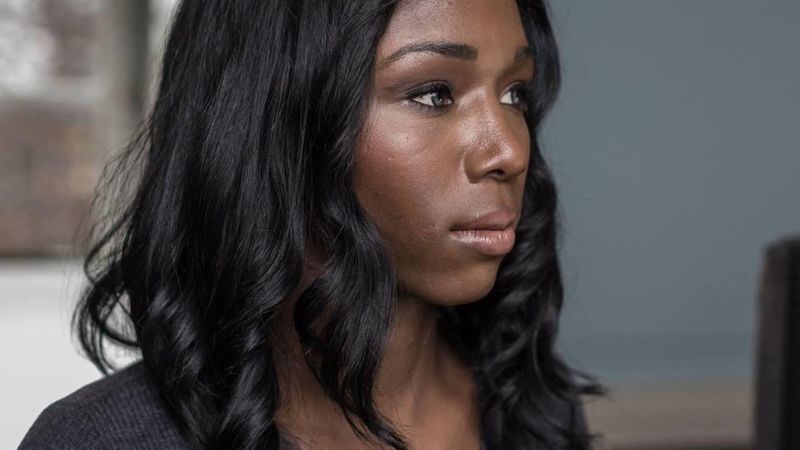


 + membership
+ membership





